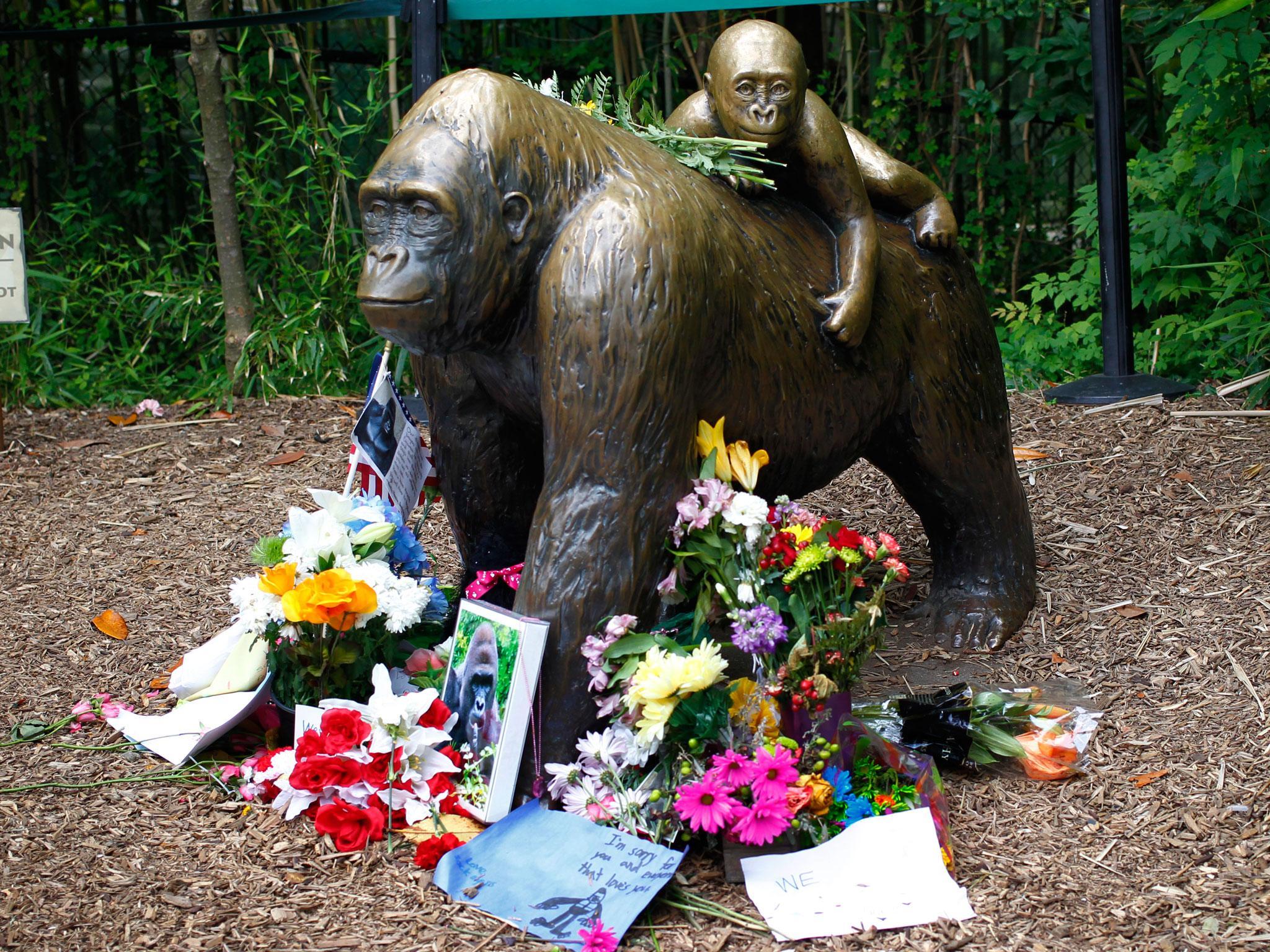Clemson University says students can post Harambe memes despite one official's email ban
The Harambe meme has been criticised for its racist subtext, which is at the root of the Clemson University controversy

Officials at a South Carolina university are performing a bit of damage control after a housing administrator reportedly sent an email banning the beloved Harambe meme from campus.
Citing reports of a racially offensive image, Community Director Brooks Artis sent an email to residents of Clemson Univeristy's Shoeboxes dormitories calling for the ban of the display of Harambe images in public spaces in living facilities.
“There was a report from an individual about a meme being offensive and bias [sic] in nature and as a result all Harambe references are no longer allowed within our community,” the email said.
Ms Artis further elaborated in a second email that the meme was racist and contributed to "rape culture".
Numerous right-wing websites picked up the story – which was first reported by Campus Reform, a news site funded by the conservative Leadership Institute – prompting Clemson officials to quickly debunk the rumoured campus-wide ban.
“The original message that went to RAs and students in one residence area that prompted the story that has been picked up and reported by multiple media was sent in error,” a Clemson spokesperson told USA Today.
The Washington Post reported that the housing office sent a clarification to students following the initial kerfuffle clarifying that a “door posting with a meme was brought to the attention of our staff as its content made some feel uncomfortable”. But they assured students that they were still free to post items on their front doors.
Harambe memes reached critical mass after the 17-year-old gorilla was killed by Cincinatti Zoo handlers after a 3-year-old boy fell into his pin. What began as outrage for the killing of an endangered animal – criticised for prioritising the life of a gorilla over the life of a black child – evolved into countless memes.
The apparent racial subtext of some Harambe memes has become the topic of debate in recent weeks.

Fusion’s Charles Pulliam-Moore pointed out that the word “harambe”, Swahili for “togetherness”, presents a “chance to poke fun at an African word while anthropomorphizing a gorilla, an animal that racists have long equated with black people as a means of calling them less evolved than people of other races”.
Harambe had been used in recent online attacks against Leslie Jones, the Saturday Night Live comedian whose role in Ghostbusters put her in the spotlight. In August, her website was hacked and her nude photos were placed alongside videos of Harambe.
Shortly after the gorilla’s death in May, a Louisiana teacher posted an image to Facebook comparing First Lady to Harambe.
A caption on the image read, “They shot the wrong gorilla,” and the teacher’s corresponding commentary said, “Someone finally got it right.”
But the essence of the subtext of the Harambe meme was summed up by comedian and Silicon Valley star Kumail Nanjiani.
“Harambe became a big meme thing because it’s a ‘funny African name’ that people can make fun of without feeling racist,” he tweeted.
Bookmark popover
Removed from bookmarks